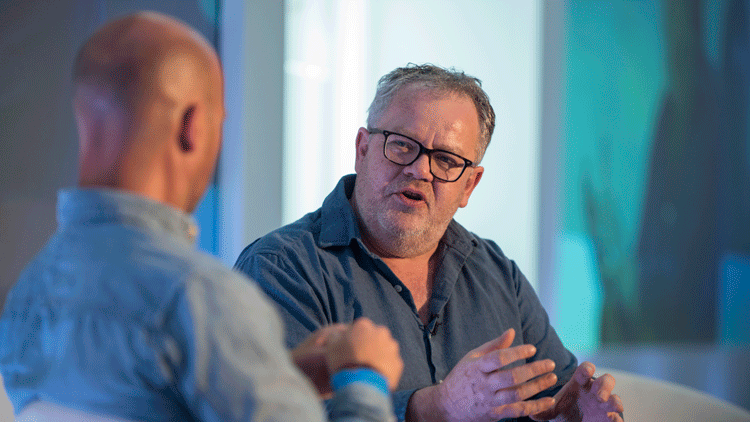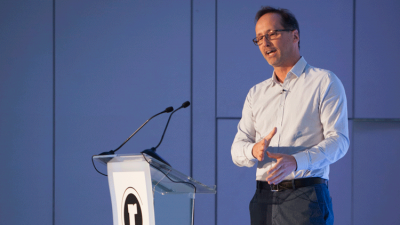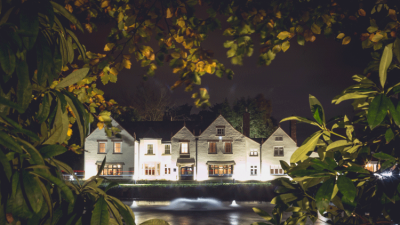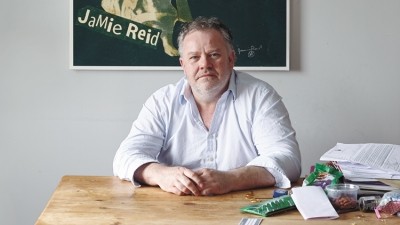Stephen Harris on being a self-taught chef

When I was 14 or 15 years old it was around the time punk had started to come out and I wanted to have a band and to learn the guitar. I went to guitar books and it was all music I didn’t want to learn – I wanted Chuck Berry and rock ’n’ roll, so I went to gigs, went to the front and watched the guitarist play. I remembered it, jumped on my bike, and went back to my room at Canterbury university and copied what I’d learnt.
This was the same way I taught myself to cook. I went to the best restaurants in the world – if you’re going to teach yourself guitar do you want Eric Clapton as your teacher or a bloke down the pub? You want the best, so I learnt from Marco Pierre White, Nico Ladenis, and Koffmann.
I wasn’t rich, I used to do lunch menus and spend just £25 and then go home and copy it. I’d have Marco’s celery soup with black truffle and when I got home I’d have the memory of what it tasted like in the restaurant in my head. I approached it quite methodically. It’s how I do things. I had no teacher, no mentor to guide me and I think you end up with interesting results. Nico, Raymond Blanc, Heston are all self taught.
If you’re going to teach yourself guitar do you want Eric Clapton as your teacher or a bloke down the pub? You want the best, so I learnt from Marco Pierre White, Nico Ladenis, and Koffmann.
I was already quite a good amateur. I have an academic background, I believe in books and research, but where do you go?. At that time it was White Heat. If you want to learn how to cook classically that’s the book to go to. I always think a chef’s first book is their best – they are excited and humble. By the third one they are dialling it in.
I have worked in restaurants, but no one wants a 33-year-old with no experience. I worked at The Fire Station in Waterloo, not to learn how to cook but how restaurants work. I didn’t know they were cooking your main while you were eating your starter. I also cooked a lot at home. I remember cooking pizzas for friends and making my own dough using imported Italian flour. I whacked the oven up as full as possible and put charred bits of wood in it, based on the fantastic wood-fired pizzas of Italy. It worked, but luckily I didn’t have a smoke alarm. That’s the way the brain works if you’re slightly obsessive.
The first five years at The Sportsman I was copying London restaurant dishes but adapting them – they would not look like a rip off, but they were really. Then I started going round the world and was fascinated by the tasting menus, and I could suddenly see a way out of classicism.
The first five years at The Sportsman I was copying London restaurant dishes but adapting them – they would not look like a rip off, but they were really.
I like concepts and ideas; that can sound a bit pretentious but you have to be able to articulate it. What was driving me was the concept of terroir and cooking just what was around me. I did feel I was breaking away and suddenly I had a style of my own.
There’s almost an orthodoxy [to cooking] that I dislike. I want to grab a chef sometimes and say ‘don’t do what everyone else is doing, do something different’. ‘Why do all your dishes look the same?’ But then I think I just copied people and wanted to make my food like it looked in their books. It’s a difficult one. I like it when people break away.
Our local college is Thanet and they do a very good job. Chefs come along open minded. Colleges are based on the French brigade idea; The Savoy has 40 chefs in the kitchen and it needs someone who has done three years training and can cook sauce hollandaise. But that simplicity based on Escoffier broke down, particularly with molecular gastronomy, where everyone was coming up with their own ways of cooking and breaking down classicism.
I say to my young chefs ‘forget everything you’ve learnt at college’. But college tells me you’re committed, you know your way round a kitchen, you use a knife well and you speak the language of cooking so we can communicate. As long as they’ve got that I can show them what we do. It’s not the kids’ fault or the colleges’, the industry has just changed very rapidly over the past 20 years.
Stephen Harris was speaking at the Restaurant magazine’s Restaurant Congress


























